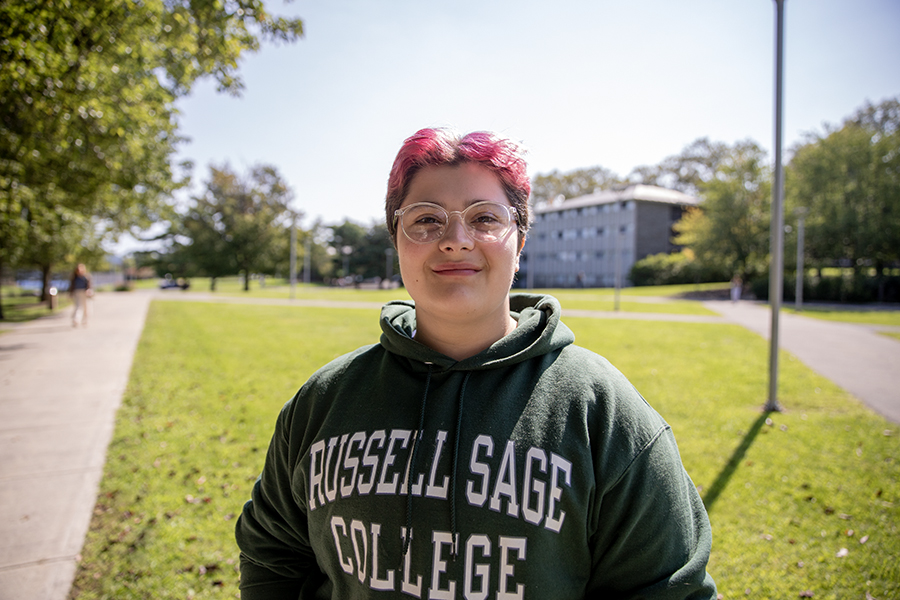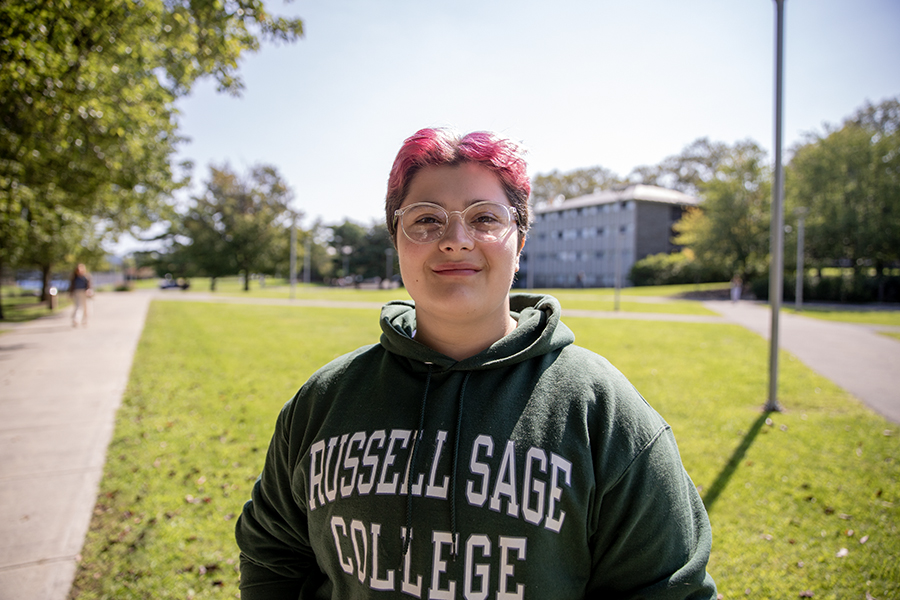The first thing to know about journalism in Morocco is that press freedoms are not equal to those in the United States. Say what you will about the American media. At least the U.S. government does not require journalists go through them to conduct interviews about government affairs, like the Moroccan government requires. This is how I found myself wandering around the vast courtyard of Moroccan ministries, getting yelled at in French by police officers and soldiers carrying AK-47s.
For the past few weeks, I have been reporting about Morocco’s religious training programs. Recently, other countries in Africa and Europe have asked the Moroccan government for help in training their Imams and other Islamic leaders as a way to counter the spread of radical Islam. So naturally for this story, I’d like to talk with Moroccan Imams and Morchidat — female Islamic spiritual guides. However, in Morocco, religion and politics are connected. So, in order to talk with Imams and Morchidat, journalists have to obtain permission from the government, specifically the Ministry of Habous and Islamic Affairs.
I got to the ministry courtyard March 27 via taxi. The police officers guarding the fortress-like courtyard reluctantly let me through after taking a look at my passport, and I was led into a small office. Two men sat behind cluttered desks.
“English?” I asked. They looked at each other and one gave more or less a nod. I explained why I was there and whom I was looking to speak with. I wrote out what they called a petition: an explanation of my story. They looked at it, then at my passport, then told me I was clear to go to the Ministry of Habous and Islamic Affairs. It was news to me that this wasn’t the ministry, but I didn’t argue.
One of the policemen gave me very vague instructions on how to get to the ministry. It was across the courtyard, past the mosque and to the right. OK, I thought, how hard could this be? As it turns out, it could be hard. Once I hit the mosque, nothing was marked clearly. I tried not to look lost, but policemen kept yelling at me to go in different directions, thinking I was with a tour group.
Getting exasperated, I asked one of the machine-gun carrying soldiers for directions. Though I asked him where the ministry was in Arabic, he shrugged and shook his head.
“You know!” I yelled, losing my temper — in English, of course, so as not to offend the guy with the gun. “I know you know! Liar!”
He laughed and I stormed away. A lady police officer finally seemed to take pity on me and pointed me in the right direction. Tired of getting yelled at, I walked into the rather bland-looking ministry like I had a purpose, which I did. Upon hearing that I was a journalist — a student-journalist, I stressed — yet another uniformed man led me through a hallway and into a small office. The man sitting behind the desk shook my hand and went back to watching a video on YouTube.
“English?” I asked brightly. I felt like an ugly American sitting here in this guy’s country expecting him to know my language, but I had been told to downplay my language ability to seem more harmless.
“A bit,” he said. “French?”
“No,” I laughed, trying to seem a little dopey. And so I started into my pitch. I’m a student-journalist trying to cover Moroccan religious training. I need permission to talk to Imams and Morchidat. This article might be published somewhere but would probably just be for school; just a harmless, blonde American who can’t speak Arabic or French trying to write an article. I smiled some more and waited for his answer.
“How do you like Morocco?” he asked. OK, time for flattery. I launched into a mostly truthful account of my thoughts on Morocco. It’s so beautiful, the people are so friendly, etc. He watched me through the round frames of his giant glasses. I smiled stupidly.
“Morocco is not like America, though,” he said. I cautiously agreed, bracing myself for an anti-America diatribe. But then he smiled, too. He started talking about what a great country America is. What a melting pot of cultures, a place everyone is accepted. I agreed wholeheartedly, feeling wildly patriotic.
Apparently satisfied, he handed me his business card, circling his email. He told me to email him my proposal, and he would see what he could do to get me permission. He stopped me as I stood up to leave.
“Did you know Morocco was the first country to recognize American independence?” he asked. Clutching the business card that was hopefully my ticket to getting the interviews I needed and feeling obscenely relieved I had made it to the ministry, I nodded.
“Yes,” I said, beaming. “We are great friends.”




